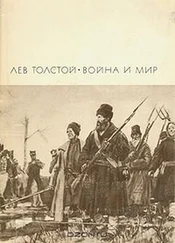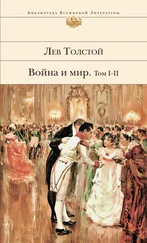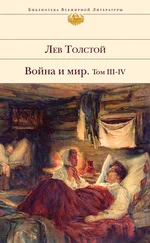| Till midday on the nineteenth, the activity-the eager talk, running to and fro, and dispatching of adjutants-was confined to the Emperor's headquarters. But on the afternoon of that day, this activity reached Kutuzov's headquarters and the staffs of the commanders of columns. |
До полудня 19 числа движение, оживленные разговоры, беготня, посылки адъютантов ограничивались одной главной квартирой императоров; после полудня того же дня движение передалось в главную квартиру Кутузова и в штабы колонных начальников. |
| By evening, the adjutants had spread it to all ends and parts of the army, and in the night from the nineteenth to the twentieth, the whole eighty thousand allied troops rose from their bivouacs to the hum of voices, and the army swayed and started in one enormous mass six miles long. |
Вечером через адъютантов разнеслось это движение по всем концам и частям армии, и в ночь с 19 на 20 поднялась с ночлегов, загудела говором и заколыхалась и тронулась громадным девятиверстным холстом 80-титысячная масса союзного войска. |
| The concentrated activity which had begun at the Emperor's headquarters in the morning and had started the whole movement that followed was like the first movement of the main wheel of a large tower clock. |
Сосредоточенное движение, начавшееся поутру в главной квартире императоров и давшее толчок всему дальнейшему движению, было похоже на первое движение серединного колеса больших башенных часов. |
| One wheel slowly moved, another was set in motion, and a third, and wheels began to revolve faster and faster, levers and cogwheels to work, chimes to play, figures to pop out, and the hands to advance with regular motion as a result of all that activity. |
Медленно двинулось одно колесо, повернулось другое, третье, и всё быстрее и быстрее пошли вертеться колеса, блоки, шестерни, начали играть куранты, выскакивать фигуры, и мерно стали подвигаться стрелки, показывая результат движения. |
| Just as in the mechanism of a clock, so in the mechanism of the military machine, an impulse once given leads to the final result; and just as indifferently quiescent till the moment when motion is transmitted to them are the parts of the mechanism which the impulse has not yet reached. |
Как в механизме часов, так и в механизме военного дела, так же неудержимо до последнего результата раз данное движение, и так же безучастно неподвижны, за момент до передачи движения, части механизма, до которых еще не дошло дело. |
| Wheels creak on their axles as the cogs engage one another and the revolving pulleys whirr with the rapidity of their movement, but a neighboring wheel is as quiet and motionless as though it were prepared to remain so for a hundred years; but the moment comes when the lever catches it and obeying the impulse that wheel begins to creak and joins in the common motion the result and aim of which are beyond its ken. |
Свистят на осях колеса, цепляясь зубьями, шипят от быстроты вертящиеся блоки, а соседнее колесо так же спокойно и неподвижно, как будто оно сотни лет готово простоять этою неподвижностью; но пришел момент - зацепил рычаг, и, покоряясь движению, трещит, поворачиваясь, колесо и сливается в одно действие, результат и цель которого ему непонятны. |
| Just as in a clock, the result of the complicated motion of innumerable wheels and pulleys is merely a slow and regular movement of the hands which show the time, so the result of all the complicated human activities of 160,000 Russians and French-all their passions, desires, remorse, humiliations, sufferings, outbursts of pride, fear, and enthusiasm-was only the loss of the battle of Austerlitz, the so-called battle of the three Emperors-that is to say, a slow movement of the hand on the dial of human history. |
Как в часах результат сложного движения бесчисленных различных колес и блоков есть только медленное и уравномеренное движение стрелки, указывающей время, так и результатом всех сложных человеческих движений этих 1000 русских и французов - всех страстей, желаний, раскаяний, унижений, страданий, порывов гордости, страха, восторга этих людей - был только проигрыш Аустерлицкого сражения, так называемого сражения трех императоров, т. е. медленное передвижение всемирно-исторической стрелки на циферблате истории человечества. |
| Prince Andrew was on duty that day and in constant attendance on the commander in chief. |
Князь Андрей был в этот день дежурным и неотлучно при главнокомандующем. |
| At six in the evening, Kutuzov went to the Emperor's headquarters and after staying but a short time with the Tsar went to see the grand marshal of the court, Count Tolstoy. |
В 6-м часу вечера Кутузов приехал в главную квартиру императоров и, недолго пробыв у государя, пошел к обер-гофмаршалу графу Толстому. |
| Bolkonski took the opportunity to go in to get some details of the coming action from Dolgorukov. |
Болконский воспользовался этим временем, чтобы зайти к Долгорукову узнать о подробностях дела. |
| He felt that Kutuzov was upset and dissatisfied about something and that at headquarters they were dissatisfied with him, and also that at the Emperor's headquarters everyone adopted toward him the tone of men who know something others do not know: he therefore wished to speak to Dolgorukov. |
Князь Андрей чувствовал, что Кутузов чем-то расстроен и недоволен, и что им недовольны в главной квартире, и что все лица императорской главной квартиры имеют с ним тон людей, знающих что-то такое, чего другие не знают; и поэтому ему хотелось поговорить с Долгоруковым. |
| "Well, how d'you do, my dear fellow?" said Dolgorukov, who was sitting at tea with Bilibin. "The fete is for tomorrow. |
- Ну, здравствуйте, mon cher, - сказал Долгоруков, сидевший с Билибиным за чаем. - Праздник на завтра. |
| How is your old fellow? Out of sorts?" |
Что ваш старик? не в духе? |
| "I won't say he is out of sorts, but I fancy he would like to be heard." |
- Не скажу, чтобы был не в духе, но ему, кажется, хотелось бы, чтоб его выслушали. |
| "But they heard him at the council of war and will hear him when he talks sense, but to temporize and wait for something now when Bonaparte fears nothing so much as a general battle is impossible." |
- Да его слушали на военном совете и будут слушать, когда он будет говорить дело; но медлить и ждать чего-то теперь, когда Бонапарт боится более всего генерального сражения, -невозможно. |
| "Yes, you have seen him?" said Prince Andrew. "Well, what is Bonaparte like? |
- Да вы его видели? - сказал князь Андрей. - Ну, что Бонапарт? |
| How did he impress you?" |
Какое впечатление он произвел на вас? |
| "Yes, I saw him, and am convinced that he fears nothing so much as a general engagement," repeated Dolgorukov, evidently prizing this general conclusion which he had arrived at from his interview with Napoleon. "If he weren't afraid of a battle why did he ask for that interview? Why negotiate, and above all why retreat, when to retreat is so contrary to his method of conducting war? |
- Да, видел и убедился, что он боится генерального сражения более всего на свете, -повторил Долгоруков, видимо, дорожа этим общим выводом, сделанным им из его свидания с Наполеоном. - Ежели бы он не боялся сражения, для чего бы ему было требовать этого свидания, вести переговоры и, главное, отступать, тогда как отступление так противно всей его методе ведения войны? |
| Believe me, he is afraid, afraid of a general battle. His hour has come! |
Поверьте мне: он боится, боится генерального сражения, его час настал. |
| Mark my words!" |
Это я вам говорю. |
| "But tell me, what is he like, eh?" said Prince Andrew again. |
- Но расскажите, как он, что? - еще спросил князь Андрей. |
| "He is a man in a gray overcoat, very anxious that I should call him 'Your Majesty,' but who, to his chagrin, got no title from me! |
- Он человек в сером сюртуке, очень желавший, чтобы я ему говорил "ваше величество", но, к огорчению своему, не получивший от меня никакого титула. |
| That's the sort of man he is, and nothing more," replied Dolgorukov, looking round at Bilibin with a smile. |
Вот это какой человек, и больше ничего, - отвечал Долгоруков, оглядываясь с улыбкой на Билибина. |



